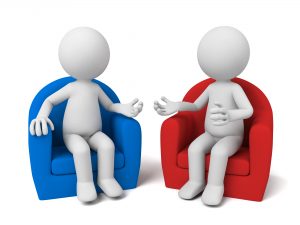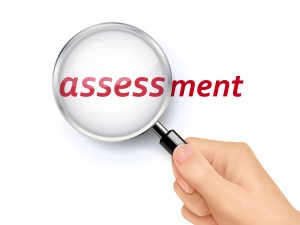Aim: Develop awareness and understanding of the causes of communication  impairments after Acquired Brain Injury (ABI), the range of communication impairments, impact on individuals, factors influencing communication, link between communication and behaviour and how to help the person with communication impairment.
impairments after Acquired Brain Injury (ABI), the range of communication impairments, impact on individuals, factors influencing communication, link between communication and behaviour and how to help the person with communication impairment.
Communication is a learned ability that is used every day, feels natural and automatic for most people and is essential to all aspects of living in a social world. It is a highly complex process involving the integration of physical, cognitive (thinking) and language skills. The process of communication is also influenced by emotional states and constantly changing social situations. Communication needs to be a highly adaptable and flexible process in order to manage all the demands of continuously varying social circumstances.
Communication impairments are common following brain injury and a breakdown of communication abilities may have a devastating effect on the person with brain injury and their family/friends. Changes to the ability to communicate effectively can be distressing and even frightening for the person with Acquired Brain Injury (ABI), having significant consequences upon all areas of their life e.g. family, social, educational and work.
The impact of ABI upon communication ability may be significant: physical impairments, impairments of language processing and cognition, and psychological and psychiatric problems can all affect the person’s communication.
Following brain injury, a wide range of potential communication problems may occur, the type and severity of the impairment relating to the nature, location and severity of the brain injury. Communication changes may be extensive, profound and life changing and may include impairments of the ability to:
- Speak clearly, produce words and put sentences together to communicate effectively.
- Hear, listen, attend to and understand other people’s communication.
- Manage conversations and social situations.
- Remember conversations and information.
- Understand written communication and to write.
- Use appropriate social communication skills and make accurate social judgements.
- Use non-verbal communication skills effectively and consistently.
Changes to the person’s communication abilities following brain injury may result in them experiencing increased social isolation and loss of opportunities for normal social communication (e.g. because of reduced access to previous social activities, employment/education and participation in family events). The person’s opportunities for interaction may be diminished significantly. There is also a risk that for the person with a significant brain injury, communication may become focussed around medical and care needs with the potential loss of normal, social communication opportunities.
The person with brain injury may experience physical changes which affect the muscles of the body, face and larynx. These changes may affect how the person with ABI is perceived and understood by other people if their ability to use body language, tone of voice and facial expression is altered/impaired. This may lead to other people misinterpreting the person’s non-verbal communication and arriving at inaccurate judgements about their personality, abilities, motivation etc.
There are many ways in which communication may be changed following brain injury. Understanding the changes to the person’s communication and the challenges they face will help in the development of strategies which support communication, guide intervention and help to maintain quality of life. Further information about the different types of communication problems that may arise following ABI and ‘how to help’ can be found by clicking on the links at the bottom of this page.
 The responsibility of the Speech and Language Therapist is to carry out assessment and intervention for communication problems following brain injury. The person with ABI is central to this process and they, their family and other members of the multidisciplinary team have an important role in contributing to the assessment process, including provision of information about:
The responsibility of the Speech and Language Therapist is to carry out assessment and intervention for communication problems following brain injury. The person with ABI is central to this process and they, their family and other members of the multidisciplinary team have an important role in contributing to the assessment process, including provision of information about:
- How the person communicates in different settings and with different people.
- What can help communication or what makes communication more difficult for the person.
It is helpful if family, carers and other members of the multidisciplinary team are included as much as possible in the rehabilitation process. This will support the person with brain injury to gain maximum benefit from intervention for communication problems.
Making Decisions
Communication impairments can affect the person’s ability to make and communicate informed decisions about their lives and wellbeing. The ability to make informed decisions is referred to as ‘capacity’. However it is important that, when able, people are supported by whatever means necessary to make and communicate informed decisions.
A comprehensive assessment of the person’s communication ability may be necessary to contribute to the assessment of the person’s capacity. Assessment may also be required:
- To establish the most reliable method of communicating with the person i.e. the method that is most likely to maximise the person’s ability to understand the information necessary to make decisions (e.g. use of written/pictured information, use of simplified language, shorter sentences).
- To facilitate the person to accurately communicate their decisions (e.g. by use of writing or other forms of Alternative and Augmentative Communication).
If, as a consequence of brain injury, the person no longer has capacity and is unable to make informed decisions, their treatment and care following ABI may be provided under the Mental Health (Care and Treatment) (Scotland) Act 2003 and/or the Adults with Incapacity (Scotland) Act 2000.
Things to be Aware of and Other Factors that may Affect Communication
Following brain injury, there are some very basic things that can affect communication but may be overlooked. Being aware of these things will help support the person’s communication after brain injury:
- If the person has hearing aids, use them. Check they are working and fitted correctly. Give as much support as necessary to help the person use them.
- Check dentures are worn and fit properly.
- Make sure reading and/or distance glasses are worn and the correct glasses are used for different activities.
- Be aware of any mental health difficulties the person may have as these may influence communication effectiveness, style and/or content.
- Factors such as pain, medical issues (e.g. infection, constipation), problems maintaining adequate nutrition and hydration, fatigue etc may negatively affect the person’s communication ability.
Ensure referral is made to a Speech and Language Therapist (SLT) if the person’s communication is changed following brain injury. Relevant information about the person’s communication abilities and needs should be readily available to people supporting the brain injured person and any recommendations made by SLT should be followed in order to maximally support effective communication.
Please follow the links below for information about the types of communication disorders that may occur following brain injury:
Dysphasia
Dysarthria
Communication and Dyspraxia
Right Hemisphere Communication Impairment
Cognitive – Communication Impairment
Communication and Environment
Social Impact
Communication and Challenging Behaviour
Augmentative and Alternative Communication
Hearing
Auditory Processing Disorder
How to Support Communication after Brain Injury